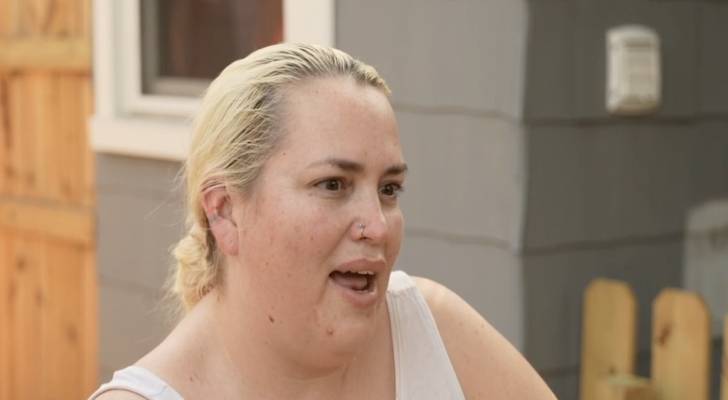
As dozens of home insurance companies flee Florida, even homeowners with coverage feel abandoned.
Chad Zalva, a single dad in Riverview, Florida, has coverage but recently discovered that the damage to his home from Hurricane Milton won’t be covered.
Don’t miss
- I’m 49 years old and have nothing saved for retirement — what should I do? Don’t panic. Here are 5 of the easiest ways you can catch up (and fast)
- Thanks to Jeff Bezos, you can now become a landlord for as little as $100 — and no, you don’t have to deal with tenants or fix freezers. Here’s how
- Gain potential quarterly income through this $1B private real estate fund — even if you’re not a millionaire. Here’s how to get started with as little as $10
His insurance company estimated the damage at around $2,500. However, a contractor quoted him $4,500 to repair. Either way, he doesn’t have the cash to cover the repairs, which include damage to a screen door, soffit and a downed fence.
"Do you have that kind of money laying around?" asked ABC Action News anchor Nadeen Yanes.
"No, not at all," Zalva laughed.
Why won’t the insurance company pay?
After rebuilding his life following a divorce, Zalva intentionally chose the lowest-cost home insurance plan due to its affordability. What he didn’t realize was that a lower premium came with a sky-high deductible.
"I did go for the lower amount," he said. "Unfortunately, my deductible is outrageous. I was like, ‘This is insanity.’"
His home insurance deductible — the amount he must pay before coverage kicks in — is $7,200. As a result, his insurance company denied his claim after Hurricane Milton. And Zalva is not alone. A growing number of Florida homeowners are facing a similar situation: Their insurance company won’t pay because their storm-related damages don’t exceed their deductibles.
According to the Florida Office of Insurance Regulation, nearly half of all Hurricane Milton claims were closed without payment. The biggest reason? More than 40% of those cases had damages that fell below the homeowner’s deductible.
Many Floridians face an uncomfortable trade-off: Higher deductibles mean lower premiums, but in the event of a storm, they risk massive out-of-pocket costs before insurance kicks in. Michael Peltier, a spokesperson for Citizens Property Insurance, Florida’s state-backed insurer, explained the problem to ABC Action News.
“Typically, hurricane deductibles run 2%, 5%, or even 10% of a home’s insured value,” he said.
That means a homeowner with a $300,000 home and a 10% deductible would have to pay $30,000 before receiving any payout. Florida’s State Insurance Commissioner, Mike Yaworsky, says these deductibles are required by law.
"The statute actually mandates that there be a hurricane deductible of some kind — 2%, 5%, 10% — on every single policy. And so that’s baked through the entire system," Yaworsky told ABC Action News.
Yaworsky added that while the law could be changed, for now, it’s up to consumers to understand the trade-offs between deductibles and premiums.
Read more: Want an extra $1,300,000 when you retire? Dave Ramsey says this 7-step plan ‘works every single time’ to kill debt, get rich in America — and that ‘anyone’ can do it
Should you pick a higher deductible to save money?
Florida homeowners face a tough decision when choosing an insurance plan. Opting for a higher deductible lowers monthly premiums but could leave you struggling to afford repairs after a disaster. On the flip side, lower deductibles mean higher premiums, which may not be affordable for some homeowners.
Pros of a higher deductible:
- Lower monthly costs: With rising Insurance rates, finding an affordable policy is essential.
- Potential long-term savings: If you’re handy or rarely file claims, a high deductible could save you money in the long run.
Cons of a higher deductible:
- Large out-of-pocket expenses: You’ll pay significantly more before insurance kicks in.
- May not be worth claiming moderate damage: If the damage is minor, you may end up footing the bill yourself.
For many homeowners, a higher deductible is either a financial strategy or the only option. To avoid being caught off guard, start reviewing your insurance policy. Know your deductible amount in an emergency fund, start saving and decide if it makes sense for your financial situation.
Then, make sure you have enough savings to cover your deductible. If you don’t already have that amount in an emergency fund, start saving — even saving just $10 a month can add up over time.
Zalva’s experience highlights the risk of prioritizing low premiums over affordability in a crisis.
"They’re just making straight profit. It’s definitely frustrating, and they need to do something about it,” he told ABC Action News.
As Florida lawmakers and insurers debate possible reforms, thousands of residents like Zalva wonder: Is their homeowners insurance protecting them when they need it most?
What to read next
- Don’t have the cash to pay Uncle Sam in 2025? You may already be eligible for a ‘streamlined’ handshake with the IRS — here’s how it works and how it can potentially save you thousands
- Here are 5 ‘must have’ items that Americans (almost) always overpay for — and very quickly regret. How many are hurting you?
- Robert Kiyosaki warns of a ‘Greater Depression’ coming to the US — with millions of Americans going poor. But he says these 2 ‘easy-money’ assets will bring in great wealth. How to get in now
This article provides information only and should not be construed as advice. It is provided without warranty of any kind.


